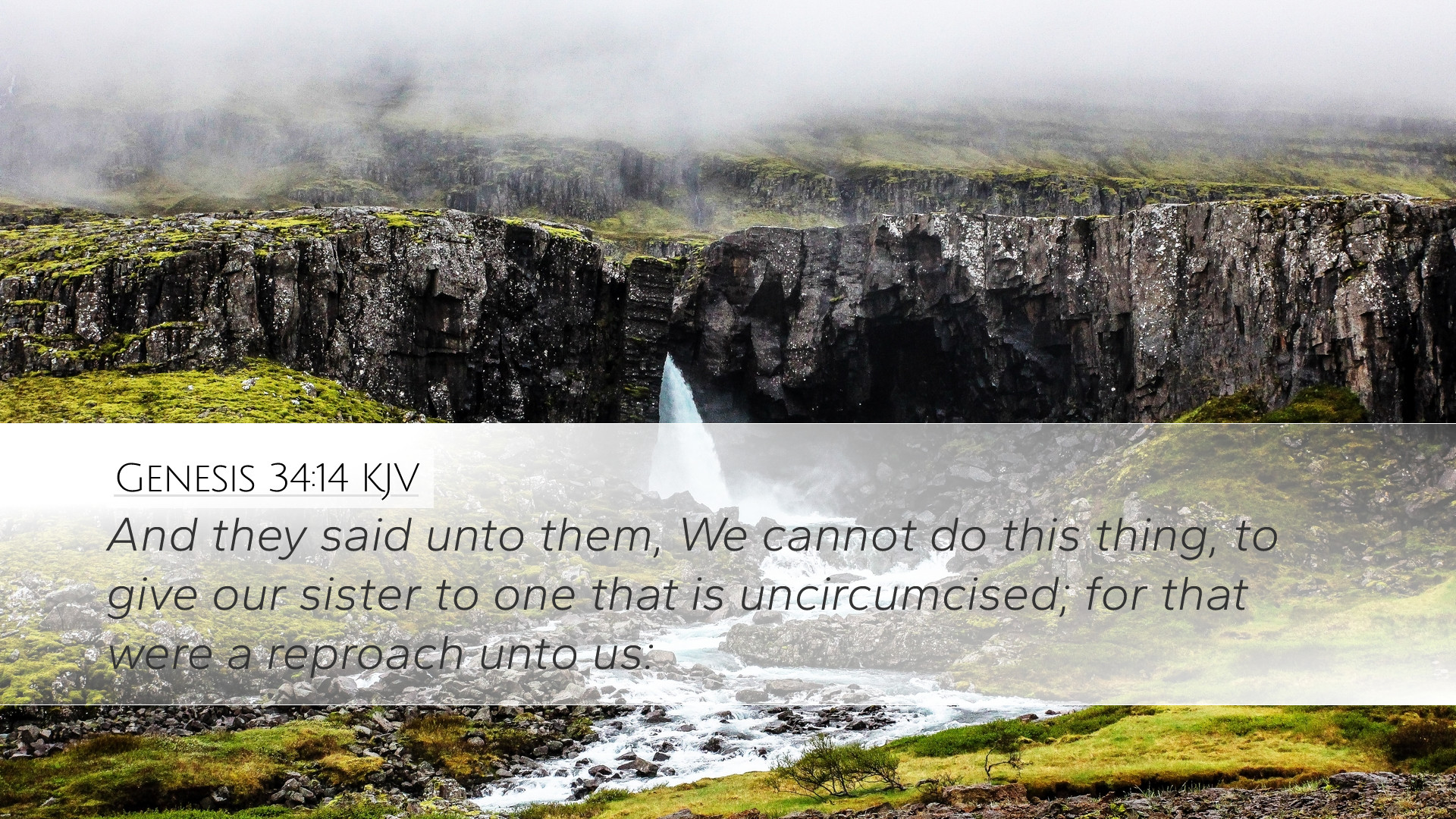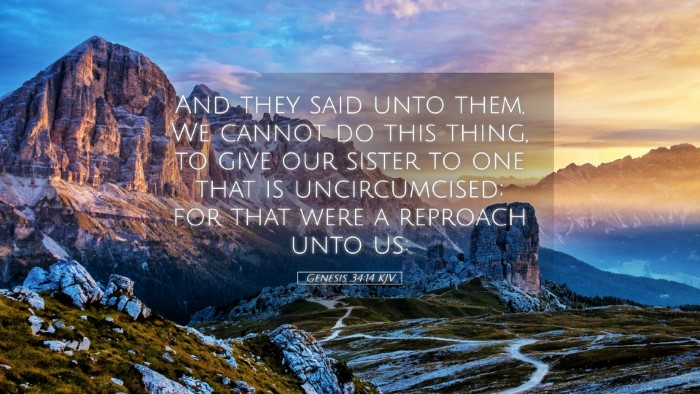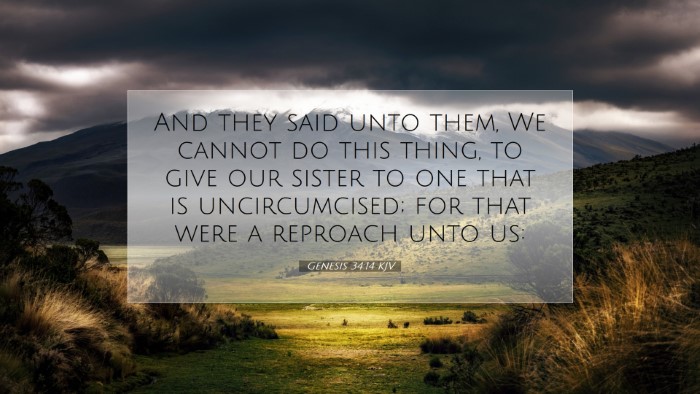Commentary on Genesis 34:14
Text of Genesis 34:14: "And they said unto them, We cannot do this thing, to give our sister to one that is uncircumcised; for that were a reproach unto us."
Introduction
Genesis 34:14 occurs in the narrative concerning the family of Jacob, specifically in the context of the incident involving his daughter Dinah. This verse sheds light on the cultural and covenantal tensions between the Israelites and the Canaanites. In the context of biblical interpretation, this interaction invites multiple angles of theological reflection and moral consideration, as explored in various public domain commentaries.
Contextual Background
The events of Genesis 34 unfold after Jacob's return to Canaan, emphasizing the continuing conflicts over covenant identity and tribal relations. Dinah, daughter of Leah and Jacob, interacts with the daughters of the land, leading to Shechem's desire for her. The consequences of this desire result in a clash of cultural and ethical values, showcased in this verse.
Matthew Henry's Commentary
According to Matthew Henry, this passage highlights several important concepts regarding covenantal purity and the significance of circumcision within the Israelite community. Henry emphasizes that Shechem, being uncircumcised, symbolizes an outsider to the covenant community of Israel:
- Covenantal Identity: The Israelites' refusal to intermarry with those who are uncircumcised underscores their commitment to maintaining distinctiveness as God's chosen people.
- Reproach and Disgrace: The implication that giving Dinah to an uncircumcised man would be a "reproach" reflects the deep-seated cultural values surrounding honor and purity within the community.
Albert Barnes' Insights
Albert Barnes provides a thorough analysis of the socio-cultural implications of this verse. He notes:
- Understanding of Circumcision: For the Israelites, circumcision was not merely a physical act but a critical sign of their covenant with God. The proposal of intermarriage with the uncircumcised indicates a breach of their religious and cultural identity.
- Negotiation and Power Dynamics: The exchange depicts a complex negotiation, illustrating how Dinah’s family grapples with issues of power and subjugation in the face of external desires, reflecting broader themes of protection and preservation of identity.
Adam Clarke's Interpretation
Adam Clarke provides a deeper emphasis on moral and ethical considerations accompanying this cultural transaction:
- Moral Objection: Clarke points out that the morality of the situation is paramount. The refusal to grant Dinah to Shechem speaks to the broader ethical mandate that Israel was urged to maintain, preserving both personal and communal integrity.
- Ritual and Belief: The significance of not intermarrying with those outside the covenant is predicated on a belief system that separates the Israelite people from potential spiritual corruption.
Theological Reflections
This verse invites further reflection on the implications of belonging, community standards, and righteousness:
- Covenantal Faithfulness: The refusal to accept an uncircumcised partner serves as a solemn reminder of the Israelites' covenant commitment to God and His commandments.
- Community and Purity: Maintaining the purity of the covenant community is a recurring theme in Genesis, serving as a protective measure against the surrounding influences that could lead to idolatry and moral decline.
- Societal Implications: Pastors and theologians might consider how contemporary faith communities engage in similar struggles regarding cultural assimilation and the integrity of religious practices.
Practical Applications
For those in pastoral roles and scholarly studies, Genesis 34:14 prompts various avenues for application:
- Guarding the Faith: There is a call to discernment in interactions with non-believers, ensuring that relationships do not dilute fundamental beliefs.
- Cultural Engagement: It encourages thoughtful reflection on how to engage with broader cultural contexts without compromising spiritual identity.
- Leadership in Family Matters: Church leaders can gain insights into protecting familial integrity amidst societal pressures, fostering discussions on biblical principles relating to marriage and relationships.
Conclusion
In conclusion, Genesis 34:14 serves as a rich text for reflection on community identity, the nature of covenant relationships, and the importance of faithful adherence to God's commands. The commentaries from Matthew Henry, Albert Barnes, and Adam Clarke provide a multi-faceted view that enriches understanding while urging contemporary readers to apply these principles in our current context.


